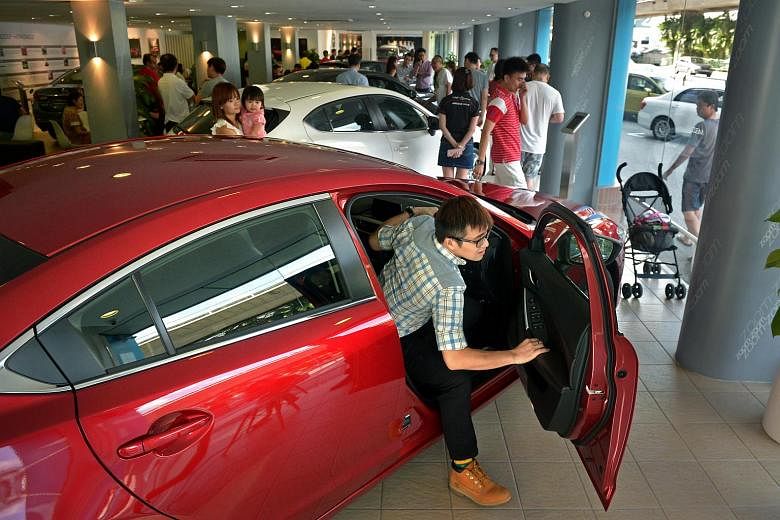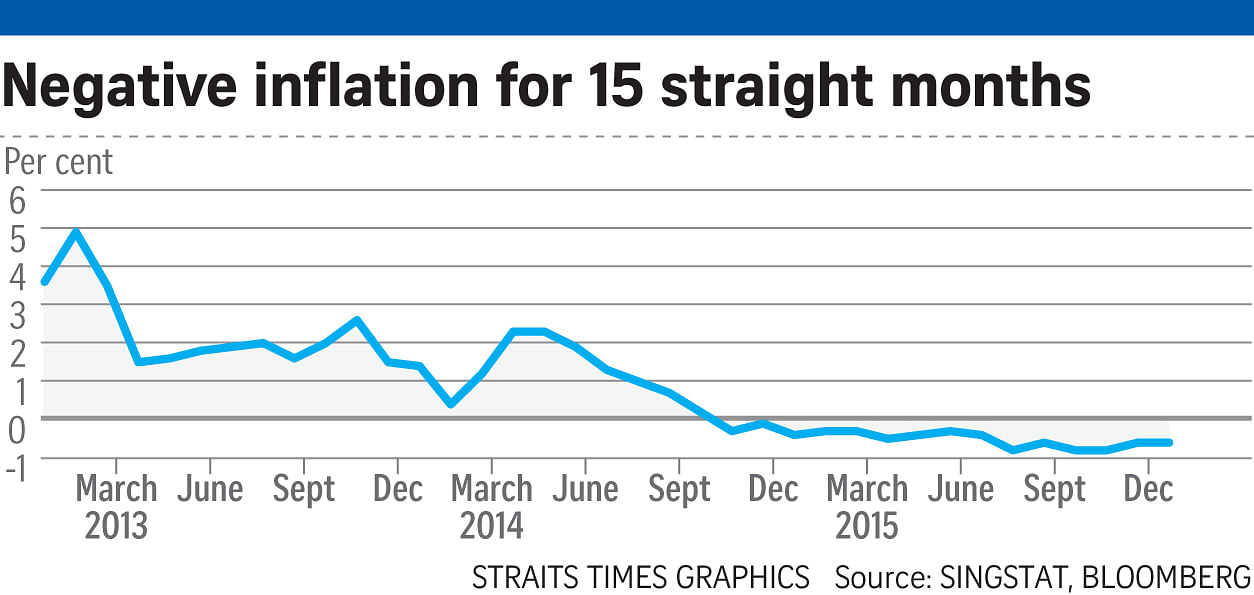Singapore's central bank has cut its inflation forecast for the year amid a historic rout in global oil prices and sliding certificate of entitlement (COE) premiums.
The move came as new data showed Singapore had its 15th straight month of negative inflation last month - the longest spell of sliding prices in almost four decades.
Sluggish inflation is hitting economies worldwide, with the potential to lead to economic stagnation.
The consumer price index, a measure of headline, or overall, inflation, fell 0.6 per cent here in January from the same month a year earlier.
However, the Monetary Authority of Singapore (MAS) kept forecasts for another key measure, core inflation, unchanged - a sign it is likely to maintain its Singapore dollar policy when it meets in April unless the outlook worsens, economists said.
The core inflation strips out accommodation and private road transport costs to better gauge everyday expenses.
MAS now expects overall inflation to come in between negative 1 per cent and zero for the whole of this year, down from an earlier forecast of negative 0.5 per cent to 0.5 per cent.
This follows a "significant step- down in global oil prices in recent months", MAS and the Ministry of Trade and Industry (MTI) said in a joint statement yesterday.
Car COE premiums also fell sharply at the start of the year, by about $2,500 - or about 4 per cent - on average over the first four bidding exercises this year.
MAS left its core inflation forecast for this year unchanged at 0.5 per cent to 1.5 per cent, as oil-related items make up a smaller share of the core inflation basket.
With global oil prices expected to rise gradually in the second half of the year, the drag from oil-related items on core inflation is likely to become smaller towards the year end, said MAS and MTI.
This means core inflation is expected to pick up gradually over the year, especially as the price-dampening effects of one-off Budget measures fade. These include medical subsidies and the abolition of national exam fees for Singaporeans.
Officials also noted that domestic wages are set to keep rising this year, but more slowly than last year.
Despite a weak inflation and growth outlook, most economists do not expect MAS to ease monetary policy at its April meeting unless oil prices sink further or Singapore's economy takes a sharp turn for the worse.
OCBC economist Selena Ling said it would be premature to expect MAS to further slow the Sing- dollar's appreciation against a trade-weighted basket of currencies, as the central bank still expects core inflation to rise later in the year.
But MAS might "interpret lower COE premiums as partly a symptom of underlying demand weakness" and a sign growth could slow further, said Citi economist Kit Wei Zheng.
Growth and inflation data in the coming months, as well as labour market developments and the Budget on March 24, will paint a clearer picture of the central bank's intentions in April, he said.



